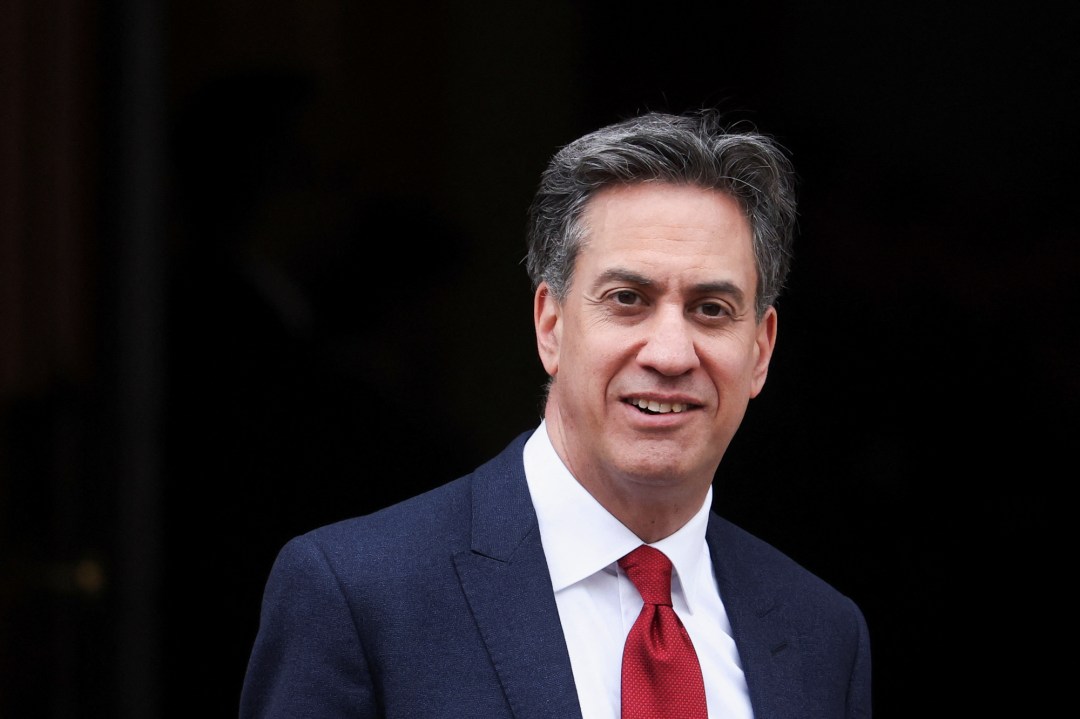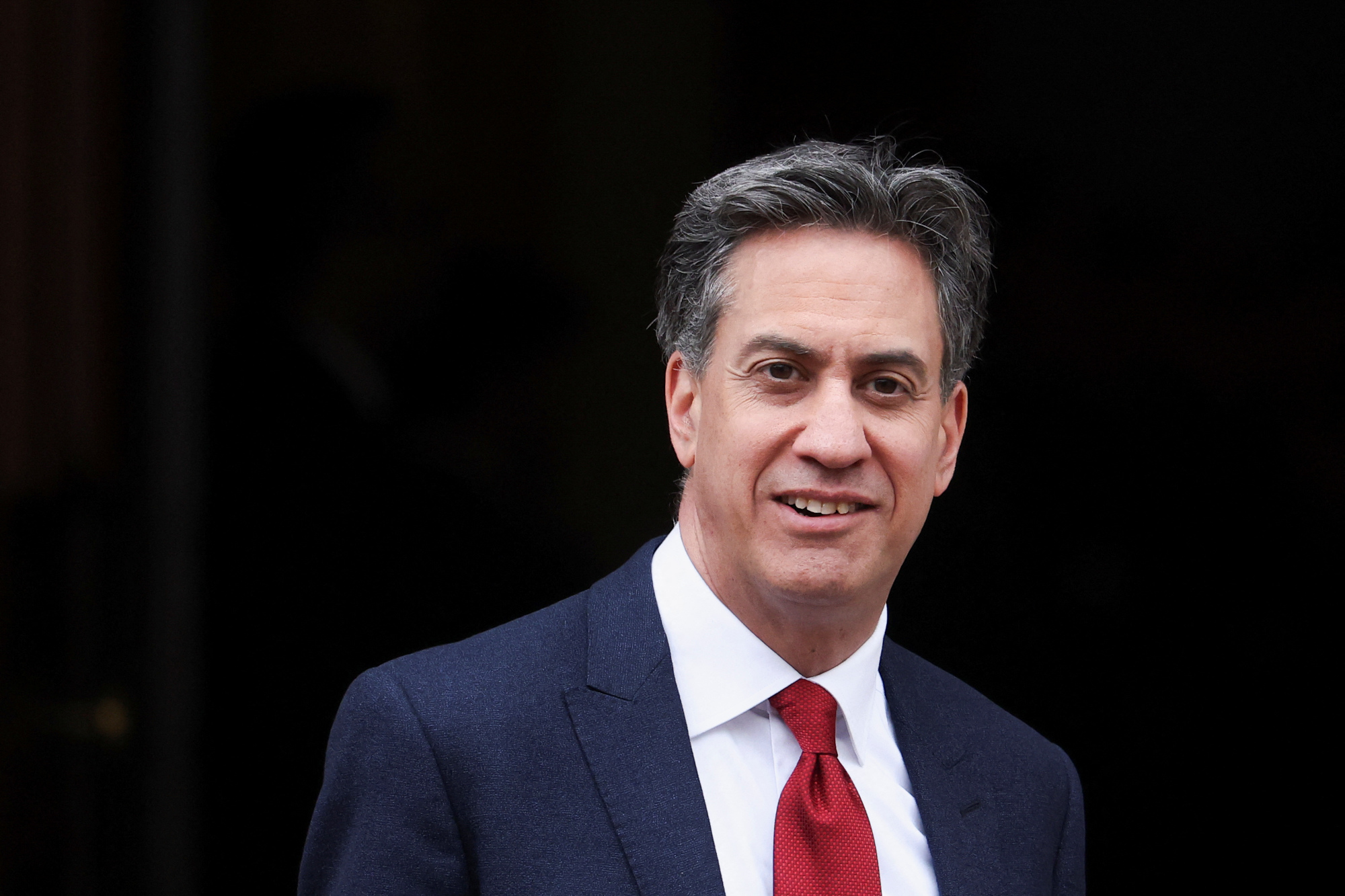The current head of energy policy in this country is Muppet-made-flesh Ed Miliband. While he makes a speciality of eye-catching policy announcements; notably playing a tuneless rendition of ‘Blowin’ in the Wind’ under a wind turbine, he is proving less capable of any form of actual policy implementation. His absolutism is increasingly bringing him into conflict with colleagues in other departments. Each time one of his ideas comes to the moment where practicality is involved, it dies. One is reminded of Thomas Huxley’s remark about Samuel Wilberforce when he fell off his horse: ‘His head finally came into contact with reality and it has proved fatal.’
And so it proved yesterday, as the energy price cap once again rose higher than expected, in defiance of the government’s pre-election pledge to reduce household energy bills by £300. When asked to explain the discrepancy between their longstanding assurances and measurable reality, ministers typically blame Russian aggression and wholesale gas prices for high energy bills; a fiction that vanishes with a glance at the international situation. Somehow, Britain has managed the unique achievement of keeping bills high despite lower wholesale prices overall and falling costs elsewhere in Europe and the US. Indeed, Britain’s energy-intensive industries are increasingly voting with their feet and seeking cheap American gas, rather than domestically produced green energy, to meet their needs.
We are often told that renewables are nine times cheaper than gas, and that they are broadly cheaper than fossil fuels in general. Yesterday morning junior minister Michael Shanks repeated the familiar line that the rise in bills was evidence of the ‘fossil fuel penalty being paid by families, businesses and our economy’. Which presents something of a paradox – why then, when the UK is powering ahead with renewables, can it be enduring some of the highest industrial and domestic energy prices in the developed world?
In a superb essay published this week, Dr Dieter Helm, Professor of Economic Policy at the University of Oxford, offers a thorough explanation. Green lobbyists and supportive politicians, he explains, tend only to point to the low headline marginal costs associated with renewables, ignoring the vast hidden costs it took to generate the ‘same’ output. This includes upfront investments like upgrading the grid, building new pylons, the complex storage systems which intermittent power sources require for periods of unusually low pressure or sunlight, not to mention the vast sums committed in annual net zero subsidies. Dolly Parton wasn’t talking about renewable energy when she said it, but I am reminded of her iconic quip, ‘You’d be surprised how much it costs to look this cheap.’
As Professor Helm notes, these factors are rarely mentioned in the national conversation, though they will certainly be reflected in the ultimate bill. And this presents a serious problem for the government. While it cleaves to its net zero soundbites, a gulf is emerging between stated and revealed preferences, between ministers’ Panglossian pronouncements and the measurable reality in people’s bills and wallets. The longer this dishonesty continues, the greater the backlash will be.
This article originally appeared in our Evening Blend newsletter. Sign up here.








Comments